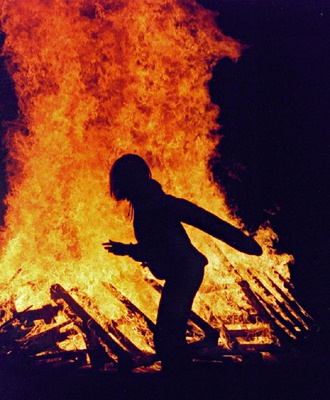All Nonfiction
- Bullying
- Books
- Academic
- Author Interviews
- Celebrity interviews
- College Articles
- College Essays
- Educator of the Year
- Heroes
- Interviews
- Memoir
- Personal Experience
- Sports
- Travel & Culture
All Opinions
- Bullying
- Current Events / Politics
- Discrimination
- Drugs / Alcohol / Smoking
- Entertainment / Celebrities
- Environment
- Love / Relationships
- Movies / Music / TV
- Pop Culture / Trends
- School / College
- Social Issues / Civics
- Spirituality / Religion
- Sports / Hobbies
All Hot Topics
- Bullying
- Community Service
- Environment
- Health
- Letters to the Editor
- Pride & Prejudice
- What Matters
- Back
Summer Guide
- Program Links
- Program Reviews
- Back
College Guide
- College Links
- College Reviews
- College Essays
- College Articles
- Back
There’s No Planet B
It was the first semester of eighth grade. Grabbing my backpack and stepping outside of my English classroom, I was met with an unusual smell. The scent of thick, burning smoke was wafting through the air, watering my eyes and instigating a coughing fit. It had happened somewhat suddenly — I hadn’t even smelled it before English.
“Where is that coming from?” I asked my friend, confused. Smoke was not a new smell to me. There was the occasional house or building fire in my town, and around Christmastime, the air was thick with the smell of wood-burning fireplaces. This smell, though, was new. It was a million times more intense, and the sky above us had darkened.
“Wildfires,” my friend replied. Looking more into it, we realized that wildfires had ravaged towns hundreds of miles away. Despite our lack of proximity, we could still smell the smoke.
The wildfires became a yearly occurrence. The next year, they were even more intense. Ash would cover everything, coating cars, bikes, and more. Sports and outside activities would be repeatedly canceled. The AQI page, or Air Quality Index, became a common webpage to visit. I would refresh it every morning, checking to see if it was safe to go outside. In my freshman year, I faced constant headaches as the smoke worsened, and the school was forced to cancel an entire week of classes. During my sophomore and junior year, it got even worse. There were forced evacuations for classmates of mine. The devastation of the wildfires continued to break records. There were certain days when the sky was a frightening shade of orange, making it feel like we were living in an apocalypse. In California alone, 4.2 million acres were burned in 2020, the highest year on CalFire record.
I am extremely fortunate that my family members and I have been safe from these wildfires. However, many have not been as lucky, and the smoke and devastation have impacted millions of those living on the West Coast. While it is true that several wildfires were started by human error, the root of the problem lies in global warming. In fact, according to Scientific American, the number of warm, dry, windy autumn days on the West Coast, the best conditions to instigate fires, has doubled since the 1980s. The world’s global temperature is rising, conditions are becoming drier, and droughts are more frequent. That comes with deadly consequences, including increased natural disasters and devastation.
To me, these wildfires have emphasized how much our planet is truly in need. Yes, it is true that the Earth is currently coming out of an Ice Age, and the global temperature will rise. However, with our greenhouse gas emissions, pollution, and environmental degradation, we are accelerating global warming alarmingly quickly. Each year there are more wildfires, more hurricanes, and more harm for more people. We need to wake up and address the problem around us. Unless we take action now, we may be out of luck indefinitely.
Environmental change can seem like a daunting task. How can one person make a significant difference? However, the earth doesn’t need one person doing everything perfectly — it needs a bunch of people doing everything imperfectly. What our planet needs is a group mentality of trying our best to save the environment. This does not necessarily mean producing no waste or cutting out red meat and dairy completely. It just means working harder, being more cognizant of the environment, and trying your best.
There are some quick, simple tips that have helped me personally to be a more environmentally friendly person. Don’t use single-use plastics — if 50 people packed a water bottle instead of buying a plastic one, more than 2,600 plastic bottles a year would be stopped from entering and harming the environment. Shop locally and organically, reducing your carbon footprint and supporting nature. Reuse and recycle, consciously noting what you are consuming and whether it would be waste. Go on runs or carpool to reduce the carbon emissions from vehicles. Volunteer or donate to a wildfire or environmental organization. Perhaps most significantly, spread the word. Remind others of what is at stake and how imperative it is to focus on our planet’s wellbeing.
Inevitably, the West Coast will experience another wildfire season this fall. I am unaware of how this will impact my community. However, I can only hope for the best and recognize the root of the problem. Spreading the word about this issue and changing my own habits can make a significant difference.

Similar Articles
JOIN THE DISCUSSION
This article has 1 comment.

2 articles 0 photos 4 comments
Favorite Quote:
Hard means not impossible